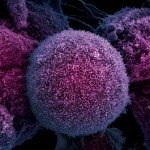Link to Pubmed [PMID] – 23384231
Link to DOI – 10.1111/febs.12166
FEBS J 2013 Sep; 280(17): 4118-30
Adult skeletal muscle has the remarkable property of regenerating after damage, owing to satellite cells and myogenic precursor cells becoming committed to adult myogenesis to rebuild the muscle. This process is accompanied by the continuing presence of macrophages, from the phagocytosis of damaged myofibres to the full re-formation of new myofibres. In recent years, there has been huge progress in our understanding of the roles of macrophages during skeletal muscle regeneration, notably concerning their effects on myogenic precursor cells. Here, we review the most recent knowledge acquired on monocyte entry into damaged muscle, the various macrophage subpopulations, and their respective roles during the sequential phases of muscle repair. We also discuss the role of macrophages after exercise-induced muscle damage, notably in humans.

